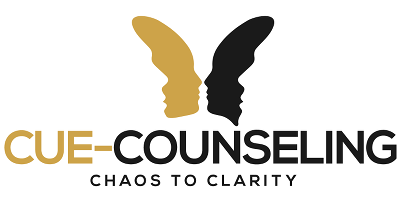🚨 Are You or Your Child Struggling with Attention and Impulsivity?
Do people criticize you for not paying attention? Do teachers describe your child as “hyperactive,” “zoned out,” or disruptive?
These are common signs of Attention Deficit Hyperactivity Disorder (ADHD)—a neurodevelopmental condition often misunderstood, especially in undiagnosed adults and children. But did you know that trauma and ADHD can share similar symptoms?
Let’s explore what ADHD is, its common signs, where it comes from, and how trauma may be related.
🧠 What Is ADHD?
ADHD (sometimes called ADD) affects how a person focuses, controls impulses, and manages activity levels. It often starts in childhood and can continue into adulthood. The condition is classified into two primary types:
🔹 Inattentive Type
Common signs include:
-
Frequent daydreaming or “zoning out”
-
Difficulty following instructions
-
Careless mistakes and lack of attention to detail
-
Poor organization and time management
-
Losing items and forgetting tasks
🔹 Hyperactive/Impulsive Type
Symptoms may include:
-
Fidgeting or inability to sit still
-
Constant talking or interrupting others
-
Running or climbing in inappropriate settings
-
Trouble playing quietly or waiting their turn
-
Excessive energy and impulsive behavior
🧬 What Causes ADHD?
While ADHD is biological in nature, its exact cause is still being studied. Contributing factors may include:
-
Genetic inheritance
-
Brain structure or function differences
-
Prenatal exposure to toxins or substances
-
Low birth weight
-
Environmental stressors or early adversity
Some research suggests that trauma in childhood may exacerbate or mimic ADHD symptoms. Let’s explore that connection further.
🔍 ADHD vs. Trauma: What’s the Connection?
Can trauma cause ADHD? Not exactly. But trauma can mimic or intensify ADHD-like behaviors, making accurate diagnosis crucial.
Trauma Symptoms That Can Resemble ADHD:
-
Hyperarousal: Constant alertness due to past trauma can mimic hyperactivity.
-
Dissociation: Spacing out or detachment can appear as inattentiveness.
-
Oppositional Behavior: Trauma may lead to distrust and defiance, similar to behaviors seen in ADHD with ODD.
-
Executive Dysfunction: Trauma can impair planning, focus, and emotional regulation.
What Experts Say:
According to the Child Mind Institute, some ADHD behaviors—like excessive talkativeness or constant interrupting—do not align with trauma. Likewise, trauma-specific symptoms like flashbacks or intrusive thoughts are not present in ADHD.
Key Takeaway:
While trauma and ADHD can co-occur and share surface-level behaviors, they are distinct conditions that require different treatment approaches.
💡 ADHD Treatment Options for Children and Adults
The good news: ADHD is highly treatable. Here are two evidence-based treatment strategies:
1. Parent Management Training (PMT)
This form of parent coaching helps families manage a child’s ADHD symptoms through:
-
Setting clear routines and expectations
-
Using positive reinforcement
-
Improving parent-child communication
-
Managing parental stress
2. Organizational Skills Training (OST)
OST teaches practical tools for better focus and time management:
-
Using planners or digital calendars
-
Breaking tasks into manageable steps
-
Creating clutter-free environments
-
Reducing screen time and distractions
-
Avoiding multitasking in favor of single-task focus
🛠 ADHD and Trauma Are Treatable
It’s important to understand that ADHD and trauma are not permanent disabilities. They are conditions that respond well to treatment, lifestyle changes, and support.
Whether you:
-
Struggle with attention, memory, or restlessness
-
Suspect unresolved trauma is affecting your focus
-
Are unsure if it’s ADHD, trauma, or both
👉 You are not alone—and you are not stuck.
With therapy, structured support, and the right strategies, you can regain control, improve your mental health, and thrive.
📌 Final Thoughts: Don’t Wait to Seek Support
Undiagnosed ADHD or unhealed trauma can lead to chronic stress, relationship struggles, or academic/work challenges. But identifying what’s really going on is the first step toward recovery.
If you or your child shows signs of ADHD or trauma, consider speaking with a mental health professional. Early intervention and a customized treatment plan can change the course of your life.
